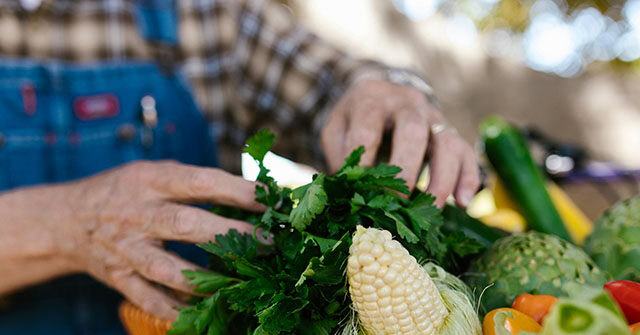AFPI released a policy brief as part of its Farmers First Agenda and Healthy America initiative, titled “Driving Responsible Nutrition Policy.” The brief aims to lay out a strategy for restoring choice and access to healthy food in federal food assistance programs.
The brief outlines the AFPI Farmers First agenda, which states:
- Federal programs should allow states to incentivize healthier eating
- Federal government must ensure domestic food supply is transparent and uphold “nutritional integrity”
- Federal nutrition programs must be restored for the truly needy and must restore the “dignity of work”
- Government and the private sector must collaborate to reduce food loss and waste
- Advocate for nutrition policy that bolsters the domestic agriculture sector
The overview of the paper states:
Life expectancy in the United States falls behind that of other developed nations, with a pre-COVID-19 average of 78.8 years compared to 82.6 years in similar countries. A contributing factor is that America is facing a chronic disease epidemic and a host of diet-related health issues stemming from poor nutrition and underconsumption of fresh fruits and vegetables in favor of less nutritious and often foreign-manufactured foods. American taxpayers are bearing the health consequences, which, in turn, are putting a strain on our healthcare system. Now is the time for federal and state governments to partner together and reorient our thinking on nutrition policy. Policies should be bold and should focus on promoting healthier choices and outcomes. They should also promote self-sufficiency and reduce dependence on public assistance. [Emphasis added]
Sarah Frey, a senior adviser for rural policy at AFPI and the founder and CEO of Frey Farms, spoke to Breitbart News about the dire need for reform at within the federal nutrition programs as well as the food system.
Despite the need for reform, she credited the first Trump administration for working on the U.S. Department of Agriculture (USDA) Farmers to Families Food Box program for working to bring 173 million food boxes of fresh produce, milk, dairy, cooked meats, and seafood worth over $5 billion to Americans.
She said the Trump administration is working on the country’s food supply and benefits programs straight on.
Frey said, “The Trump administration is, really, is, you know, they’re not afraid to tackle and take on big problems that this country has.”
America First Policy Institute – “Driving Responsible Nutrition Policy” by jmanship on Scribd
She added, “The connection has been made that the food that we eat is directly related to so many of the health challenges that Americans face, and it puts an unnecessary burden on our healthcare system and many, many other aspects of our country and American lives.”
“This was a major focus for the Trump administration as well, making sure that farmers were connected directly to consumers, and unfortunately, that that program wouldn’t get to continue under the Biden administration. I feel like now we have an entirely new runway and ability to go out and really solve some of these big challenges,” she remarked.
The AFPI brief noted that the Trump administration is approving states’ ability to obtain waivers for the Supplemental Nutrition Assistance Program (SNAP) allowing them to ban soda and other unhealthy foods from the list of foods eligible for purchase on SNAP. As of May, the brief noted, Nebraska, Indiana, and Iowa became the first three states to obtain waivers to ban these unhealthy foods starting in 2026.
AFPI cited a review of studies that found people who frequently drink sugary drinks are more likely to experience health issues such as weigh gain, obesity, heart disease, cognitive decline, and many more issues.
USDA said that state policymakers should address school feeding programs. One prime example of necessary reform is the International Dairy Foods Association’s Healthy Dairy in Schools Commitment, which barred several artificial dyes sold to schools for the National School Lunch and Breakfast Programs.
AFPI said another area desperately in need is the generally recognized as safe (GRAS) program that allows food manufacturers to avoid scrutiny if a food is typically seen as a safe product. It was first created to protect scrutiny for safe products such as table salt and baking soda.
AFPI noted that a Government Accountability Office (GAO) review found the Food and Drug Administration (FDA) cannot ensure that corporate-self-affirmed GRAS substances are safe. AFPI called to eliminate the conflicts in interest in this program and audit existing GRAS determinations.
WATCH — Make School Lunch Great Again? RFK Launches Attack on “Politicized” Food:
The paper called for able-bodied adults without dependents to obtain gainful employment as a condition for receiving SNAP to ensure that only the most in need receive SNAP benefits and to incentivize self-sufficiency.
A passion issue for Frey, she has noted that so much food has gone to waste through the country’s food supply. The paper noted that 30 to 40 percent of American’s food supply goes to waste, which translates to roughly 133 billion pounds of food annually.
Potential fixes, according to AFPI, include:
- Normalize consumption of “imperfect” or “ugly” produce
- Clarify the meanings of food safety labels, such as “Sell By,” “Use By,” and “Best By”
As the country moves away from synthetic, petroleum-based dyes, AFPI said the Trump administration should work with fruit and vegetable producers to create more natural dyes from vegetables such as beets and spinach.
Frey told Breitbart News, “We’re also excited about the new market creation for farmers via the natural food dyes, since we see a pivot. There are things that you know we’re going to be able to grow now as farmers that we weren’t really growing a lot of before. I mean, take red dye, for example. I mean, what do you need for that? Okay, you need a beet supply. So we’re ultimately looking at, okay, we get to expand and diversify the crops that we grow, which is ultimately great for farmers.”
Breitbart News
Read the full article .


